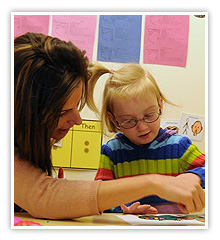
 Student Counseling
Student Counseling
Nassau County & Suffolk County - Long Island
What is Student Counseling?
Student Counseling, sometimes referred to as Play Therapy, builds on the natural way that children learn about themselves and their relationships in the world around them. Through this therapy, children learn to communicate with others, express feelings, modify behavior, develop problem-solving skills, and learn a variety of ways of relating to others. In therapy, toys and activities are used to allow a child expression of thoughts and feelings appropriate to their development.
 Which children may benefit from Student Counseling?
Which children may benefit from Student Counseling?
At Alternatives For Children, student counseling is one component of a team approach to assist in developing a child’s ability to benefit from educational and therapeutic intervention. Children who may benefit from this service include those with low self-esteem, excessive anger, worry, fear, or shyness, behavior that interferes with social interaction, and behavior that impacts on the ability to learn. Children experiencing adverse childhood experiences, trauma, such as a chronic illness, family difficulties, or loss, may also be candidates for therapy.
How Will Student Counseling Benefit A Child?
Student Counseling is designed to meet the needs of the specific child. Counseling is provided by psychologists and social workers in a playroom specifically designed, decorated, and furnished with the toys, books, and other items a child may need in order to express themselves and their concerns. Student Counseling sessions may also be provided in the classroom to assist in developing the child’s peer social interaction and coping skills within context. Parents are important allies in the counseling process and can enhance the work their child does in sessions. Psychologists and Social Workers communicate frequently with parents to learn what is happening in the child’s life, to share important observations, and to provide suggestions on how parents can incorporate the strategies used in counseling into home and community settings.
Home > Programs & Services > Student Counseling in Suffolk County, New York

